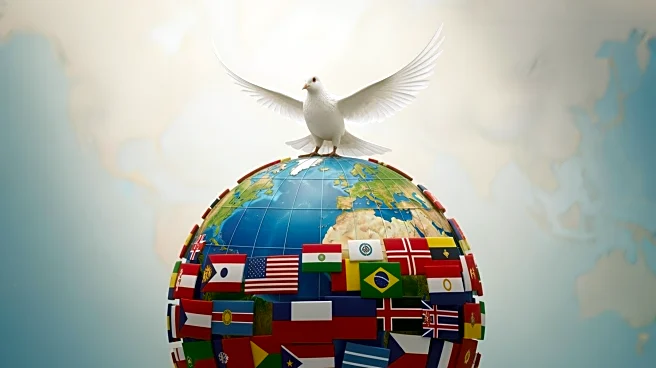What's Happening?
U.S. officials have circulated a draft U.N. Security Council resolution to establish an International Stabilization Force (ISF) in the Gaza Strip for at least two years. This development is part of a broader
peace initiative brokered by President Donald Trump, aiming to end the ongoing conflict in Gaza. The proposed ISF would be responsible for securing Gaza's borders with Israel and Egypt, protecting civilians, and training a new Palestinian police force. The draft resolution, described as 'sensitive but unclassified,' suggests that the ISF would act as an enforcement force rather than a peacekeeping entity. The initiative follows recent agreements involving the return of hostages and remains between Israel and Palestinian groups, marking significant progress in the peace process.
Why It's Important?
The establishment of an international force in Gaza represents a significant step in President Trump's efforts to reshape the Middle East peace landscape. The ISF's mandate to demilitarize Gaza aligns with Israel's security demands, although Hamas has not fully agreed to this condition. The success of this initiative could stabilize the region, reduce hostilities, and foster cooperation among Israel, Hamas, and Arab nations. However, the potential for confrontation remains if the force encounters resistance from armed factions. The U.S. administration's ability to secure international support and manage diplomatic negotiations will be crucial in implementing this plan.
What's Next?
The next steps involve diplomatic discussions to finalize the ISF's mandate and operational terms, requiring consensus among U.N. Security Council members. The Trump administration faces the challenge of persuading countries to contribute troops to the force, contingent on the resolution's specifics. The outcome of these negotiations will determine the feasibility and timing of the ISF's deployment, with implications for regional stability and U.S. foreign policy.









